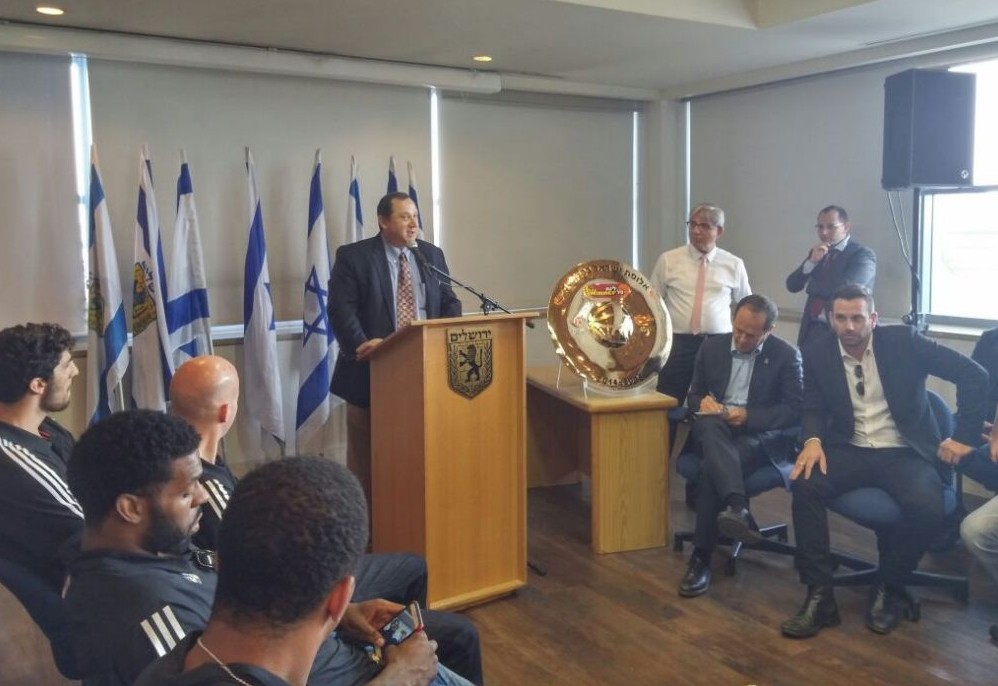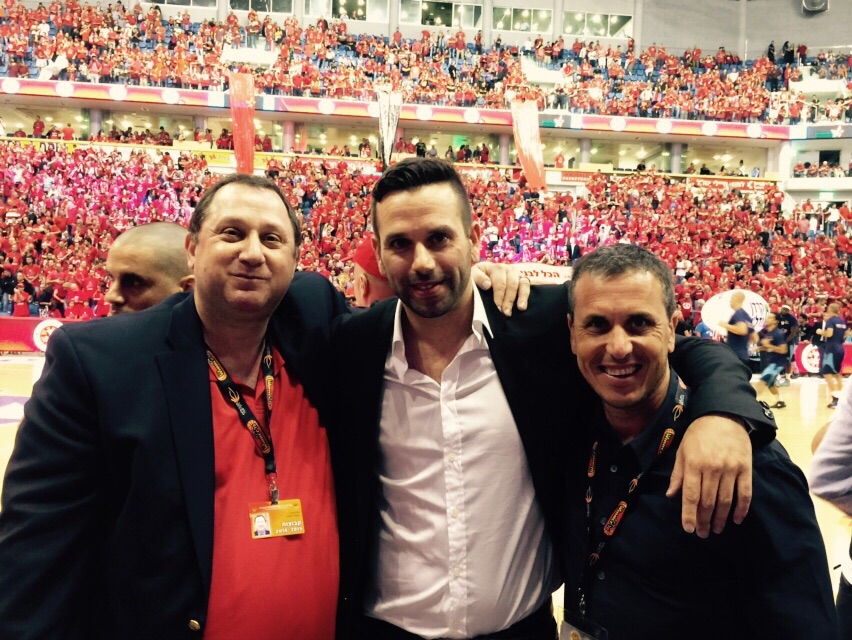What we do
Multi-Family Real Estate
Our team is very selective in choosing investment deals. We focus on finding deals we think we can improve, regardless of the market. The market is a bonus. We look for sellers who are more interested in a buyer who will close, rather than sellers who will start with the highest price and then re-trade or make it more difficult along the way.
Our reputation for closing on time, not renegotiating after due diligence, and being easy to move a deal from beginning to end, is what sets us apart and why we are often the buyer of choice for a seller.
“Shalom Menora learned from one of the best in the business (his father). I deal with so many buyers and sellers and never know who I can trust to do the right thing. When I need a buyer that affords certainty of close and who will not try to re-trade again and again, Shalom is one of my go-to clients who I can trust.” (Raymond Lord- SVN realty- Oklahoma)
Our current preferred markets are:
- Midwest, Southeast, and Southwest locations
- Size of a deal in dollars (single asset) $5 million to $50 Million
- Size of a deal in dollars (portfolio) $10 million to $150 Million
- Size of any one property 150 Units to 500 unit
- Asset Class- Multi Family
- Class Type B or C+ Location type A, B, or C+
Sterling Healthcare Management was opened in 2013 by MFC. It started in the Indiana market and now has 6 facilities. It is looking to grow in the coming years in the Midwest, and possibly outside of the Midwest. The company focuses on skilled nursing as well as assisted living. On a mission to give quality care, Sterling has recruited people who buy into its culture. “If we don’t care about each other, how can we care about our residents and their families?”
Our facilities are between 60 and 130 beds. Our goal is to have facilities that are friendly, aren’t too large, and where people know each other.
Our philosophy is – good people lead to good nursing, which leads to people to send their loved ones to our homes, which leads to a successful business. Our business is care, and care defines the success of the business.
Menora was a full partner in Hapoel Jerusalem from 2013-2019 and a legacy partner until 2023. Menora was part of the ownership group that saw the team grow from a perennial top 4 team with a small 2500 seat area, to an annual contender. The team moved into its 10,000-seat arena in 2014 which brought it up to the same level as Maccabi Tel Aviv. The team won its first league championship in 2015 and its second in 2017. During that period, its most famous partner (also player) was Amare Stoudmire. Maccabi Tel Aviv and Hapoel Jerusalem are the Israeli equivalent of the Boston Celtics and the Los Angeles Lakers of the 1980’s.


For Hapoel Jerusalem, if you build it, they will win
Co-owner credits unlikely championship run by capital’s basketball squad to brand spanking new 10,000 seat arena
Want a hometown basketball team to win? Build a new arena.
“That’s one of the reasons that basketball team Hapoel Jerusalem finally won its first championship game in 70 years”, said Shalom Menora, one of the team owners.
“The old arena was a high school gym with 2,500 seats,” said Menora. “You’re limited. You can’t sell luxury boxes or VIP rooms. There’s no parking. If you can sell seats — that’s all your revenue, and then sponsors want in and it’s a happening place to come to.”
More money also means you can pay for better players, said Menora.
“It all helps,” said Menora.
Menora, a diehard basketball fan who immigrated to Israel from Chicago in 1995, saw his history with Hapoel begin in 1997, when he attended his first game.
At that game, held during Hanukkah, he watched the official candle-lighting ceremony before the game take place with a menorah lit by a sponsor, the owner of Soda Club, as SodaStream was then known. He promised himself that one day, he would be lighting the Hanukkah Menorah at a game.
“Making blessings and singing Hatikvah, at a basketball game,” reminisced Menora. “I said, one day, this’ll be my team.”
This past December, Menora lit the menorah joined by a group of children from Shalva, a special-needs organization in Jerusalem. By June, he’d arranged to turn one of the rooms in the arena into a synagogue used for evening prayers during half-time by more than a hundred fans each game.

It was a little more than a year after Menora and his fellow owners had taken control of the beleaguered Jerusalem team.
Back in 2000, Menora, who owns investment firm Menora Financial Corp, talked about buying the team with general manager Guy Harel, who had been the team’s towel and water boy back when his father, Avi Harel, was the team’s general manager. But nothing happened.
Two years ago, he was in the US on business when he received a phone call from Harel, who told him that he was putting together a tender to buy the team.
“It took me about two seconds to decide that I was in,” said Menora.
The other interested buyers were Ori Allon, who grew up in Mevasseret Zion and has earned his fortune selling technology companies to Google and Twitter; sports agent Arn Tellem; Eyal Chomski, of media company Adler Chomski; Howard Wietschner , a retired partner from Goldman Sachs; and David Kleinhandler, a New York businessman who bought in with NBA basketball player Amar’e Stoudamire.
“They were all fans of the team”, said Menora. Chomski, a native Jerusalemite who lives outside the city, has come to every game for the last 20 years and always brought his three kids. Allon played on the Hapoel youth teams while growing up in Mevasseret Zion and has remained an ardent fan. Stoudemire, said Menora, feels close to Judaism and Israel and wanted to be involved in a local project.

Allon, who is president of the board of owners, said he was also approached two years ago, just as he’d sold his company, Julpan, to Twitter.
“The team was in trouble,” said Allon. “I was willing to be a dominant player and take accountability, but I wanted partners.”
When he helped round up the other future owners, he asked each why they wanted to buy into the team.
“If you want to make money, it’s not a good investment,” he told the Times of Israel. “The people who ended up investing all had the same mindset, they want to do something great for the city of Jerusalem, a successful team that could bring a lot of joy to the city.”
Allon had long-term goals for the team, he said. It wasn’t about winning championships, but about building a strong foundation for the basketball club and and building a tradition of basketball in Jerusalem.
“The new ownership is so great and so passionate and they’ve really come together,” said Tamir Goodman, a former professional basketball player who now heads international relations for the team by helping organize the team’s clinics and camps, hosting Birthright groups, bar and bat mitzvahs, and following up any other tourism angle. “It’s a combination of sports and Jerusalem. It’s this synthesis of physical and spiritual.”
But what helped clinch the team’s turnabout was its new 10,000-seat arena.
“Danny Klein never had an arena,” said Menora, referring to the former team chairman. “He ran Hapoel for almost 20 years, and everything, good and bad, was Danny Klein. He would go around every year trying to find sponsors. It’s literally apples to oranges, there’s nothing to compare.”
When the new ownership took over in 2013, the team had to continue playing in the old arena for a year.
“We thought we’d win the championships last year,” said Menora, laughing. “That’s fans for you.”

This fall, when the arena opened, the team found itself in completely different surroundings. While the ticketing system initially printed seats that didn’t exist and the local police had to figure out traffic patterns during games, the budget had already jumped to just over NIS 30 million ($7.8 million) from an annual turnover of NIS 10 to NIS 11 million (around $2.6 million).
“Once you have a 10,000-seat arena, you can change the budget,” said Menora. “We have big-time sponsors, we have a TV contract. When the system has enough people in it, it allows you to function better.”
The arena has 11,600 seats on 47,00 square meters (506,000 square feet), in an arena built on eight levels, as well as 18 seating galleries and 16 executive boxes. It was built at a cost of NIS 399 million shekels ($111 million) — “just under budget,” said Mayor Nir Barkat when it opened in September. It was a joint venture, financed by the national lottery organization Mifal Hapayis — which spent NIS 281 million ($78 million) — and the municipal and national governments.
“The team itself receives no government funding, said Menora. The entire budget comes from sponsors, ticket sales, luxury seat sales and merchandise sales. There are currently around 5,000 subscribers,” said Allon, and he’d like to reach 10,000. That, and get the team to play in Europe, a larger, more prestigious playing arena.
Menora said that the owners’ plan is to make Hapoel a worldwide brand over the next five years.
“In Israel, most of the sports businesses lose money, even Maccabi Tel Aviv loses money every year,” he said, referring to the championship-winning basketball team. “The best are close to break-even.”
The team is not trying to make a profit, emphasized Allon.
“It’s 100% about giving back, we’re not trying to make money out of Hapoel Jerusalem,” he said. “We’re investing a lot of money and we hope that one day, we’ll be closer to being balanced, but definitely not profitable.”
As Menora quipped, “We love it enough that it’s worth writing the checks.”

“With its win against Hapoel Eilat on Thursday, the Jerusalem home team may finally be on the verge of joining the prestigious Euroleague as well”, said Menora, adding that “the team would find out this week if politics play to their advantage this year.”
But, he said, sports is like life: “You never what’s going to hit you.”
Source: timesofisrael.com
In 1995, Shalom invested in and was the CEO of Netmedia Internet Services, which merged with Netvision in 1997. It was the largest Internet company in Israel in the 1990’s. MFC’s most notable investment was as a seed investor in QXL, which was the European equivalent of eBay. The company went public in 1999 and had a market cap at its height of $3 billion (the equivalent of $10 or $20 billion today). MFC has invested in over 30 startup companies over the years and continues to invest in startups today in a variety of fields.





